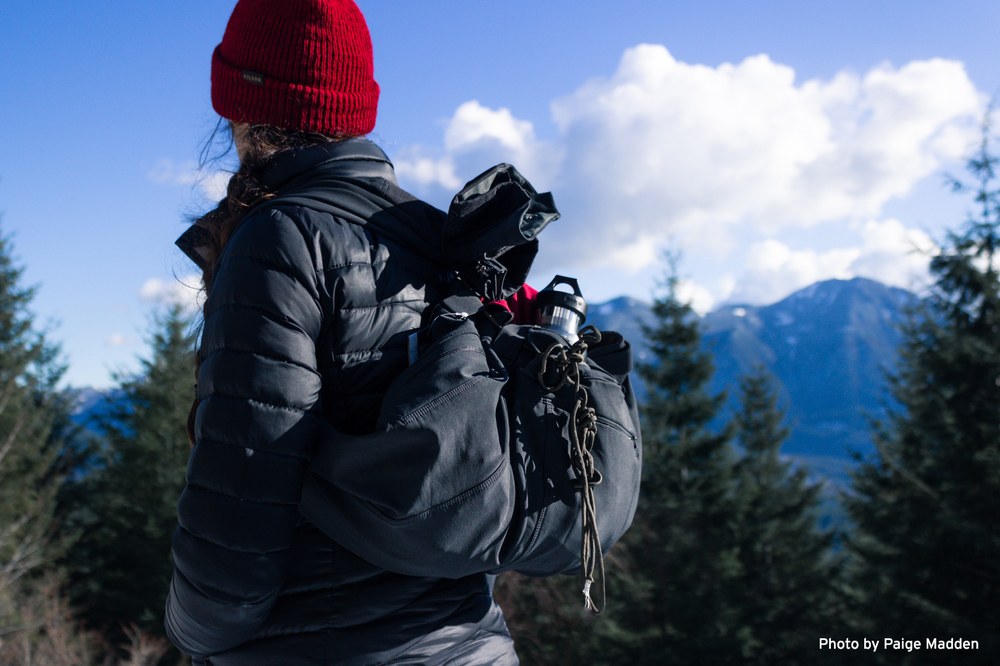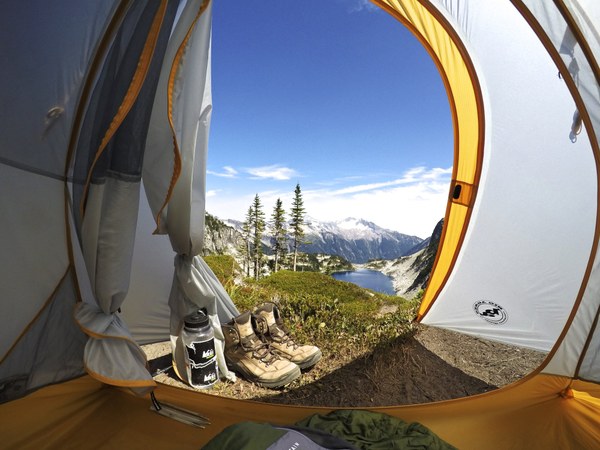
Luxuries that we take for granted in our homes – the convenience of a kitchen, the comfort of a light switch – are nonexistent once you’re off-grid. The need for self-sufficiency is part of the appeal of the outdoors, but it also offers the opportunity to find yourself in a position where you didn’t pack as efficiently or appropriately as you should have. The time will come when you open your pack and realize that you forgot an item integral to your comfort or sanity. It’s happened to all of us, and is often a sign that your stoke outweighed your preparation.
Fortunately you can often work around packing mistakes, allowing you to play MacGyver and save face with your travel companions by impressing them with some practical, absurd, and obscure adventure hacks. Flexibility and resourcefulness are important attributes to cultivate when you’re spending time outdoors – review these tips and tricks to whip out the next time you have to sheepishly admit to a serious packing oversight.
I forgot my lantern
You’re car camping or taking a leisurely backpacking trip, and the lantern you thought you brought didn’t made it into your pack. Fortunately, as long as you have a light source and a clear water bottle or jug, you can make one yourself. Take your light (flatter headlamps are best) and secure it to the bottom of your bottle or jug. The water will diffuse the light throughout the bottle and give you a soft, dispersed, and stationary source of light. If you have a flashlight with a handle, tie a semi-opaque plastic bag over the head so it balloons outward and creates an air bubble of light.
I forgot my fire starter
You’re in an area and season that allows campfires, and you’re excited to enjoy an evening in front of a few crackling logs. Except – you don’t have any fire starter. However, you are a Frito fiend. Chips are great fire starters because they’re dry and covered in oil, and almost any kind will do. Depending on how badly you want a fire, you can sacrifice your snack as starter. Of course, the typical options of bark, moss, grass, and small sticks work well, but depend upon whether there was recent rainfall.
I forgot my toothbrush
A toothbrush may seem small, but by day three your teeth will feel as mossy as the logs across camp. And your tent mate may be noticing the state of your breath as well. Grab gauze from your first aid kit and wrap it around your finger, using the rough texture to scrub your teeth and gums clean. Bonus points if you have thread on hand to floss with.
I forgot my plate/bowl/spoon
Dinner is bubbling on your stove and you’re ready for a big meal after a long day… but you forgot to bring something to eat it with. Take a thin plastic water bottle and slice it in half lengthwise with your pocket knife. Cut this in half widthwise, then slice off 1/4-1/3 of the remaining bottle so that it’s small enough to be a spoon, depending on how large the bottle was to start. If you don’t have a water bottle handy, duct tape or tin foil can also be used to fashion a spoon. You only need to make a spoon – you don’t need a fork when you have a knife, Davey Crockett. If you can’t eat out of your pot for some reason, use the half a water bottle – the edges curve up making it a trough-like ‘bowl’. Just be sure to cool your food before dishing up.
I forgot my day pack
You’re on a long trip and your 70-liter pack is stuffed to the gills. You’re at a spot for an evening or two, and you decide that you want to take a shorter day hike into the surrounding area. You dig around and realize that you forgot your day pack at home. Do you have a spare pair of pants and some cord? Tie the end of the legs tightly together with the cord, then bring the cord up and string it through the belt loops of the pants. Pack a light set of supplies into the seat of the pants, then draw it closed with the cord. Wear the legs as backpack straps and enjoy your pants pack for the day. This trick can also be used with your only pair of pants, depending upon bug levels and the tolerance of your travel companions.
 Photo by Rafael Godoi.
Photo by Rafael Godoi.
Want to make sure you’re always prepared to be unprepared?
Keep these supplies in your pack as fail-safes in case your gear is forgotten or needs repair.
Duct tape
Great for anything from repairing a ripped tent to removing a splinter, duct tape is a holy grail emergency supply for a reason. Store it by wrapping it around your trekking poles or water bottle – it will likely come in handy at some point.
Paracord
Paracord (short for parachute cord) was originally used on the suspension lines of US parachutes in WWII and quickly became popular for its lightweight durability and resistance to rot and mildew. Use paracord to pitch a tarp, tie down supplies, mend a pack, replace a shoelace, make an emergency tourniquet, or do most anything else you can think of.
Petroleum jelly-soaked cotton balls
Your camp stove broke and you’ve already eaten your Fritos. Petroleum jelly-soaked cotton balls are a great back-up because they take little time to prep, can be made from items around the house, and will fit into almost any spare space in your pack. Though it’s hopefully unlikely you’ll find yourself without your usual cooking or fire starter methods, the cost-to-benefit ratio is so good that these are a no-brainer piece of insurance to tuck away.
Battery charger
We go into the woods for solitude and a break from our devices, and so we should all start and end a trip with an almost-full battery. That said, things happen, and it’s easy to find yourself with a low battery when you realize you need your phone to serve a critical purpose. Even if you’ve been conservative with your use, cold weather can drain a battery fast. A backup battery charger is great if you need to make an emergency call or use your phone for offline navigation. It can also be used to recharge a headlamp or flashlight if you’ve opted out of single-use battery gear. Don’t forget to pack your charging cord as well.
Backup batteries, lighters, knifes, and first aid supplies
Though it’s not a hack and will make ultralighers groan, redundancy is as good (or better) as Macgyvering a solution out of other pieces of gear around camp. If you’re always sure to have multiples of key items on you, you’re far less likely to find yourself in a critical situation. This is especially true for gear that serves multiple purposes, like batteries and knifes.
This article originally appeared in our Summer 2019 issue of Mountaineer Magazine. To view the original article in magazine form and read more stories from our publication, click here.
 Hailey Oppelt
Hailey Oppelt